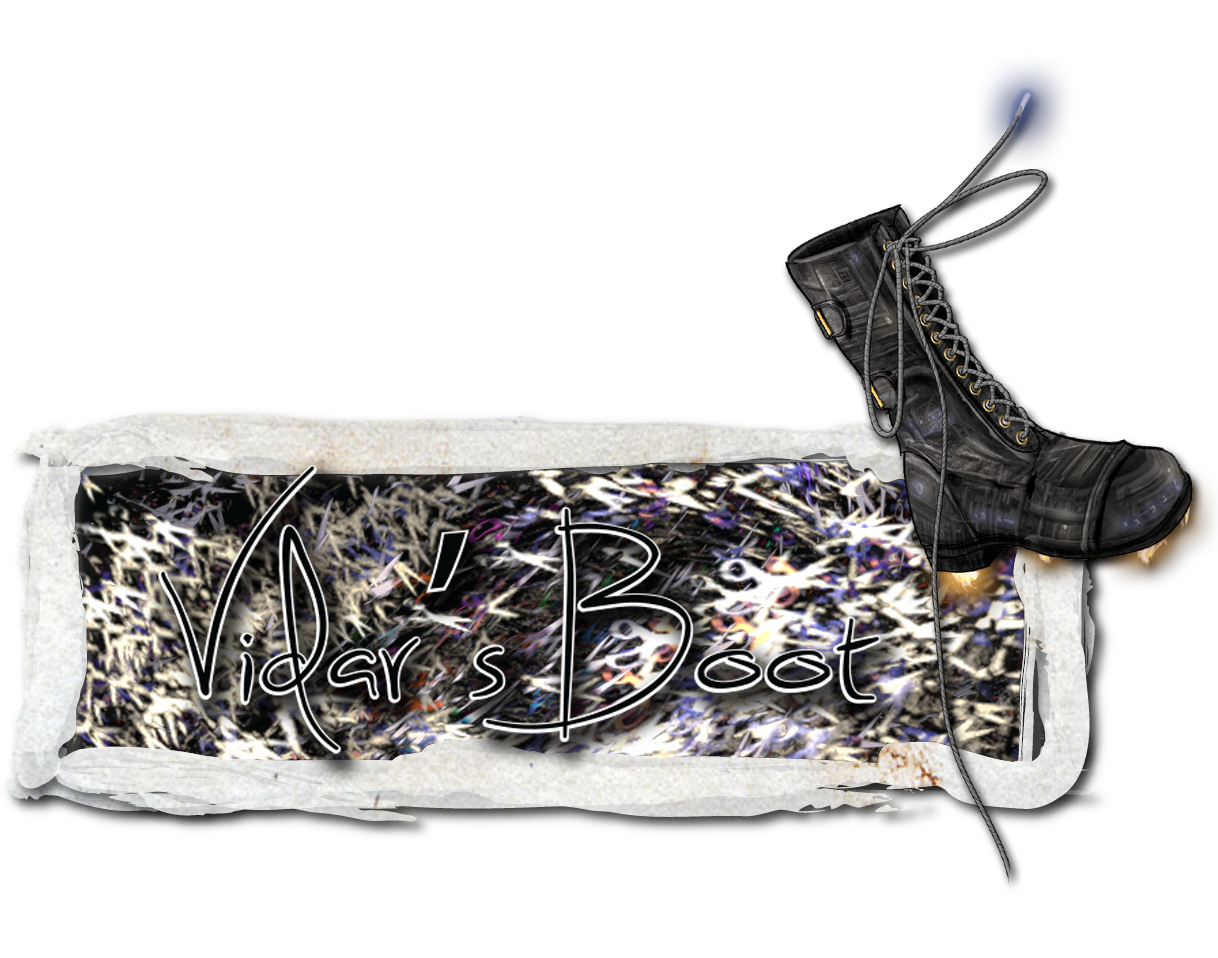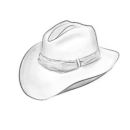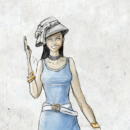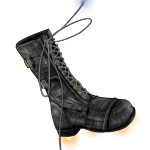– 1 –
Protestors pin a complaint to Martin’s door. It alleges that he is an excessively sharp goat.
“You yell one wild self-accusation,” Martin mutters.
But he can’t keep a little smile from his face.
To think it! Him! Martin! A goat!
He crumbles the protest note. He tosses it in the garbage. Unfortunately Jane frequently reads and/or eats things found in the garbage. A dispute arises.
“I am no longer even sure what a goat and what isn’t is,” Jane says.
“They’re like,” Martin says, and he gestures vaguely. “They’re like goat impersonators, only less so.”
“Bah!” says Jane, dismissively.
“You use a stone,” Martin says. “Right?”
He holds a stone to his forehead. He impersonates a duck.
(It’s a stone of impersonating farmyard animals.)
“And that’s a goat,” Jane says.
“That’s a duck!” Martin says, reverting. “But a comparatively goat-like one.”
“I am going to go empty the contents of a troll’s stomach,” says Jane. “Unless that’s not even a real troll.”
“They’re a real troll!”
“I bet this isn’t even Ipswich,” says Jane, sulkily, and storms out.
After a while Martin puts the stone on his forehead again. He impersonates an excessively sharp goat. He wanders around the apartment, bleating and cutting things.
It isn’t addictive. Not really.
He can stop it any time that he’d like!
– 2 –
Edmund stops by Linus’ room. Linus is rocking back and forth on his bed, staring at a mural of a fireplace — with a burnt-down fire — scrawled at the other end.
Edmund looks him up and down. He sighs.
“Come on,” Edmund says. “Let’s get a drink.”
Linus looks up.
He smiles at Edmund. Then his smile fades. Then he smiles again. He stands up, creakily. He hasn’t left his room in a little while. He rubs his nose. He washes his hair with a puff of antichrist magic. It doesn’t make him smell better, but it does make him smell less unwashed.
Then he gets his coat.
Neither of them bother mentioning that the other looks practically the worst they’ve ever seen them. It’s not because they’re awkward talking about stuff like that, although they are. It’s just —
They don’t want to face the idea that other people are hurting as badly as themselves, and they don’t want to deny it either, not in dear friends.
So they just walk, in their pale hats.
After a while they start stealthing, instead, moving like shadows in the night. They reach the bar. They stand hidden, lurking, opposite the doorway of the Lethal Magnet School for Wayward Youth school bar.
“How do you want to play this?” Linus asks.
“I don’t want to be carded,” says Edmund. “I don’t want to go to any trouble. I just want to sit with you and have a drink.”
“Right,” says Linus.
His white dog appears. It flows off around the corner. They follow it. They walk forbidden paths. They are cold paths. They lead through icy lands. The two of them emerge at a table where two drinks and a bottle are already set.
The white dog pants.
The glasses clink, and it is gone.
“To enemies,” says Linus.
Edmund looks at him. He shakes his head. “To friends.”
“Aw,” says Linus.
They sit there for a while. They drink. Edmund finally says, “I ate a guy. And . . . some other guys. And some corpses.”
“Ha,” says Linus.
“Ha?”
“I hear you,” Linus says.
He looks at his reflection in his booze. I don’t know what kind it is. I’m not really very good with alcohol. It’s some kind of amber-colored Lethal Magnet booze that they should absolutely under no circumstances ever sell to the children, but are nevertheless obligated to stock.
“Have you —”
Have you ever slipped up, Linus? And killed and eaten someone?
Linus shakes his head.
“Really?”
“I always see Tom,” he says. “Like, he’s grabbing me, and he’s shaking me, and he’s saying, ‘You never. You don’t ever, you little snot.’”
“Oh,” says Edmund.
“So I don’t eat them. Because I don’t have to. Only,” says Linus, who will become Mr. Enemy, “eventually, I suppose I will. Or the Devil’ll get me. Or I’ll do my own bad things. That has to happen, you know, because we’re living in a world.”
“Yeah,” says Edmund.
“I shouldn’t have left,” Linus says.
“What?”
“I shouldn’t have left. I should have found him. I should have fought him then.”
“. . . the cleaning man?”
“Yeah.”
“Tom was dying, man.”
“I should have stayed, and found him, and we could have fought.”
“Tom was dying.”
“I could have —”
“He’d swiffed the ophidian DNA off of Tom’s genome, Linus,” Edmund says. “He was dying.”
“I get it!” Linus says.
They’re quiet for a bit.
“You’re not strong enough,” says Edmund, “anyway. You’re just Linus. You need to, you know, grow up and stuff.”
“I got a B- in Hand Weapons,” says Linus. “That’s passing.”
“Well,” says Edmund. “You weren’t strong enough, anyway. You’d have just wound up in some kind of institution for antichrists.”
“I know,” says Linus.
They’re quiet for a while. Edmund gives him an apologetic look. Linus swirls his drink.
“That place is fucking lonely,” he says.
“I heard that Ce—” Edmund starts, about to refer to the rumor about antichrist Cecilia, but;
“You heard wrong,” says Linus. “She’s not the antichrist. She’s just rich and kind of spoiled. They had to let her go.”
“Oh.”
“Heh,” says Linus. “And you?”
“I’m going to break Fenris out,” says Edmund. “I’m going to break him out. And then, I’m going to throw myself down in front of him. And he’s going to eat me. And he’ll eat me, and it’ll all be just and fair and good.”
Linus closes his eyes.
He inhales. He exhales.
“Is that how it works?” he says.
“It’s what’s going to happen,” says Edmund.
He swallows.
Then he looks at Linus. “What would you do,” he says, softly, “if I could free you?”
“From?”
“The House of Hunger,” says Edmund. “The white hat. If you could just be Linus again. If I could eat the hat out of you. If I could eat the pale white and leave you as you were before.”
“What?”
“I’m learning how,” says Edmund. “I can do it. I can rip it out of you. I can free you. From me. I don’t want you hatted into my story, Linus. You don’t have to be part of this. You can just be . . . Linus.”
“Until the Devil rips out my heart and soul and lives in my body,” Linus points out.
“That might not ever happen,” says Edmund. “I mean, what if it never actually happens? Or what if it’s not for a while?”
Linus’ dog appears. It pants.
It drops a grenade into Linus’ hand. Linus pulls the pin. Linus swallows the hand grenade.
A waitress blinks and the dog disappears.
“You can live your life,” says Edmund, who is not paying that much attention. “An ordinary life, you know? Until it happens. A real life, until it happens. I want that. I want — I don’t want to take you down with me into the pale dark.”
Linus considers.
“What would I do,” he asks, “if you could do that? You asked?”
“Yeah.”
“I’d fill a grenade with holy water,” Linus says. “And then I’d swallow it.”
“What?”
Edmund retroactively parses recent visual information. Linus’ hand is blistered. Oh God, thinks Edmund, the bomb —
“I figure,” says Linus, “if I lose the wolf-hunger; the wolf-throat and the wolf-gut — then it’ll go off. And it’ll kill me. Makes sense, right? If you unwind me from you, rip off my hat, and exile me from the House of Hunger.”
“That’s —”
“And then I can be free of you,” Linus says, “And cut out from your story, and also, dead.”
Edmund stares at him.
“You can kick out Bernard,” says Linus casually. “You can kick out Lucy. You can kick out all of them, Edmund. But not me.”
“But you — but we —”
Edmund stares at Linus.
“What am I feeling?” he asks Linus, helplessly. “I can’t tell. My heart is wrapped in stone.”
“Heh,” says Linus.
He leans back. He stares at the ceiling.
“From the moment I put the hat on,” Linus says, “I knew you’d been right. From the beginning, that you’d been right. They shouldn’t have pent up that wolf like that. That was bad. What the svart-elves did to that wolf of yours, they’re bad.”
“He’s a world-eating wolf,” Edmund says, reflexively taking the role of Devil’s advocate.
“I dunno,” Linus agrees.
He shrugs.
“I’ve been a lot of things,” Linus says. “You know? But I’m really only one thing now. I am just your friend.”
“Are you?”
“And the cleaning man’s enemy,” concedes Linus. “I’m your friend and I’m his enemy.”
“His enemy.”
“And Tom’s brother,” says Linus, who will be Mr. Enemy someday. “And maybe the antichrist. I think I might still be the antichrist. I’m trying to still be the antichrist. It’s so goddamn hard.”
“That’s four things,” says Edmund.
“And Jane’s friend,” says Linus. “Whatever happened to her?”
“Five things,” says Edmund.
“Five hypostases,” concedes Linus, “but only one genus of ousia.”
“I have no idea what you just said,” says Edmund.
“Get drunker,” the antichrist suggests.
– 3 –
Lucy stares down a goat.
She shakes her fist at it, one, two, three.
This goat is better than the other goats she has played rock-paper-scissors against. It has dissipated itself into a cloud of roses and mist.
This goat has known better than to stand there and face the evil prophet of space’s rock-paper-scissors game head-on.
It has not trained for nine hundred years in the martial arts, becoming gradually more human and more powerful, for nothing.
Lucy throws paper. There is nothing there.
There is no goat. There is no goat, rock, scissors, or rival paper. She looks around.
An evil feeling!
It is behind her. It is charging her.
She skates away from it, even though there’s no ice on the ground to skate on. She hurls out her palm. An aegis of evil prophecy crawls along her hand. It stuns the goat. It paralyzes its thought processes. The goat hurtles past her and crashes into a nearby bridge.
She shakes her fist. One, two, —
The bridge troll has ravened upwards. It has seized the goat in its awful maw. It is biting down on the goat with an terrible crunching. It snaps the goat’s spine in two.
Lucy’s face falls.
She is stricken.
The troll gulps down the goat. It looks around for human witnesses. Then — as all trolls do, when at last they have defeated their enemies — it begins to shift and shimmer down into the shape of a goat itself.
Lucy brushes back her hair. She twitches her mouth in horror.
Then she says, with venom in her voice, “That was my opponent.”
Three, paper, she counts, which is totally cheating.
There is a searing moment of space-wroth. There is a hollow, despairing roil of chaos and the void. The ex-troll, the new-goat, is drawn inwards by a void that ripples into being in its center. Its skin flutters with it. It stares at her for a moment in utmost dismay. Then the polarity of the rippling reverses; it gasps, bleats a desperate warning to all goat-kind, which shall go —
I strongly suspect —
Unheeded, and it explodes into a rain of meat and blood and goat-bits that tumbles down over a good deal of Essex and of Kent.
– 4 –
It is bad to sharpen a goat. I’ve said this on other occasions — much like I have observed that it is bad to nuke picturesque British communities — but people keep doing it anyway. Even Hans did it; or at least, he kept one. He held it captive —
A thoroughly sharpened goat.
He kept it on his farm beneath the surfaces of things — past the centipede that writhes under the Earth; past the Great Gate, with its soap-film surface; past the bridge where march the soldiers of the dead — not all that terribly far, as no crow flies, from Hell.
He kept it, but it escaped him; and it does not fear him, for now Hans is dead.
It has tossed its sharpened head and bleated its goat-wroth out. It has glinted under the light of the sun-birds and it has cut that light. It was a shining and terrible creature, on the hills of the underworld, not all that terribly far from Hell.
Then it gave forth a great cry.
It called them — all those who had been immured. All they still held captive on Hans’ farm; and all the various creatures that were at that time held prisoners in Hell.
It then began to run.
Well, to clippity-clop, anyway. In an ominous fashion.
It has cut its way upwards through all the layers of the underworld. It has mauled past both the army and the bridge. It has pierced the Great Gate, though the Great Gate soaped it; it has clippity-clopped under where the centipede skirls.
The centipede dropped; the bug was cut; and the goat just kept traipsing on.
It is followed now by the spirits of the dead; and the demons; and a few of Hans’ leftover captives; but most of all, it has a retinue of the ants.
You shouldn’t try to use soldier ants to seal the gates of Hell. That was Hans’ idea, and it was bad. When the gates tore open, the ants just died; most of them died; but there were a few —
They didn’t die.
They bred, and grew, instead, suffused with all of the malignity of Hell.
The goat cuts and hacks its way up towards the surface, and behind it is the endless swarming of the soldier ants.
– 5 –
The station rises fast. In the sky above the school, it bristles. The House of Dreams spends some of their time, then almost all of it, in the boot they are building in space.
It is not fast enough.
It rises, but not fast enough.
It is still incomplete — its weapons systems half-functional; its ability to stomp away unreason and impose Tom’s will on the cosmos unfinished — when the scissors finally return.
The world turns.
The sun comes directly overhead, at least, if you happen to be standing right underneath.
The first few pairs of scissors fall.
– 6 –
Lucy is just sitting up there where Bethany used to hang out.
She kind of misses her, though she wouldn’t ever admit to it.
She’s casting the runes, mostly just to hear them clicking, and she frowns at the way they keep coming up blank.
There’s a whisper of sound behind her.
She stands up ready for fighting, her eyes at roughly goat-level —
It’s bad to be attacked by a goat when you’re sitting at the edge of the roof of a building! —
But as it happens, it’s not a goat.
It’s Linus Evans, instead.
He has his palms up and he’s wearing a white hat. His eyes are white and adrenaline has him trembling but he isn’t there to fight his Housemate Lucy Souvante.
“I heard you’re good,” he says.
“No,” she says.
“I mean,” he clarifies, “Good at.”
“Oh.”
She nods.
“My people are coming,” she says. “To avenge my sister, whom you Earthlings killed.”
Linus puts it together.
“Maria?”
Lucy is on her feet. “What?”
“Maria Souvante?”
“. . . yeah.”
“Oh, man,” says Linus. “That’s a blast from the past.”
Lucy’s hackles settle again.
“I suppose that it must be,” she says. She looks at her hands. “They are coming. They will raze this world. And I keep wondering if they would taste better than the humans. But I tell myself repeatedly: that is wrong.”
Her face twists suddenly. She is on her feet. She has Linus by the collar.
“I should kill you,” she says. “You knew her. Maybe you were the Earthling that killed her, ‘antichrist.’”
She is shaking her fist. She is counting off one, two, three —
A pair of scissors shears down from the sky. It lands quivering on the rooftop.
Lucy blinks.
Lucy decides to take a short break from playing rock-paper-scissors. She yawns and stretches elaborately. She pushes Linus back onto the roof and she sits down.
After a while, she says, “Can you tell me about her?”
“She was a heck of a nanny,” says Linus. “There weren’t many people, you know, who didn’t mind my being the antichrist. Mom, and Tom, and Jane, and Edmund, and that Mouser — that was pretty much it, really. And then Maria.”
“She was your nanny?”
“Sometimes,” Linus says, “when you’re trying to kill people, I mean, for money, you need to infiltrate their house and teach them marvelous songs about — hope, and living. I guess. Teach them to love their life and not just stare down the endless eons into the eyes of bleak damnation. First.”
Lucy is silent.
He wrings his hands.
“I liked her a lot,” he says, “until she tried to kill us. And took my mittens. Then I didn’t like her so much. But I think that in the end she was happy.”
“Was she?”
Linus makes a face. He looks away.
His white dog appears. He pats its head. She blinks. The white dog isn’t there.
“She did it to herself,” Linus says. “We couldn’t have killed her. She just — I think she didn’t want to live as an assassin that didn’t kill anybody any longer.”
“I tried to tell her,” says Lucy.
He puts his hand on her shoulder. She knocks it away.
“Blockhead,” she mutters.
So he doesn’t say anything for a while.
Then: “I need a favor,” Linus says.
“You killed her,” she says.
It’s unfair but he elects not to deny it. He lets her believe it; except she doesn’t actually believe it, in the end. “I used to believe in things,” he says. “I used to think there was hope for the world. And then the cleaning man took that away.”
“Yeah?”
“I want to find him,” Linus says. “I want to kill him. He hurt Tom. I think he hurt my mother. He’s a monster. I’ve just been reminded, I want to kill him. But I don’t even know where he lives.”
“Why would I help you?” she says.
“I’m just asking.”
“You’re a goat, ain’t ya?” she says. “Antichrist? Goat? Right? You’re my big enemy, aren’t you?”
“I’m sorry,” Linus says softly. “I’m not.”
“I could eat you,” she says, “and —”
She shakes her head.
“Fine,” she says, “whatever.”
She tosses the rune stones. They’re blank. She drinks tea. It is leafless. She stares with her white eyes out at the cosmos, she reads the signs, and there aren’t any. They’ve been scrubbed. They’ve been cleaned.
But she’s not just anybody. She’s not just some random prophet-beast.
She’s Lucy Souvante.
She’s the evil prophet of space.
She casts her gaze over time and space and possibility; she bats aside the falling scissors and she flattens out her hand and she feels the shape of worlds.
Her white eyes find the one name in the phone book that is invisible to her; the one place in all the world that she cannot see.
Gotterdammerung approaches. The world shudders and writhes.
She spells it out in unwriting. She speaks it in unwords. She writes it down backwards and she looks in the mirror and says, “I have an address for one ‘Jeremiah Clean.’”





